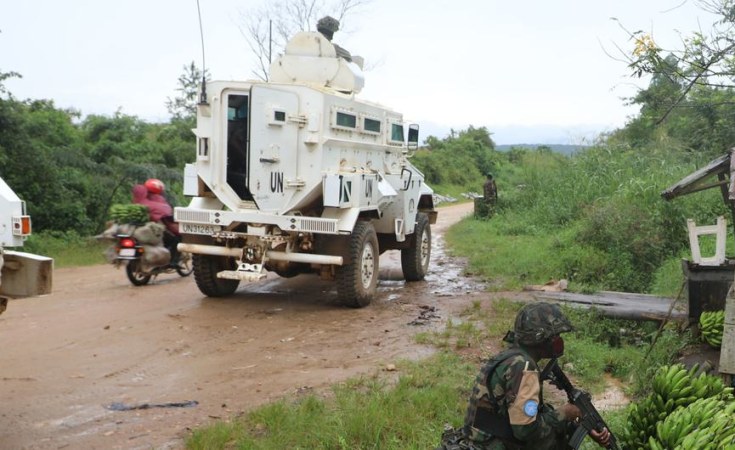Gaborone — The president of the Democratic Republic of Congo has accused East African forces deployed to fight rebels in his country of working with the enemy. Felix Tshisekedi made the remarks Tuesday during a visit to Botswana, where he welcomed the planned deployment of Southern African forces as a replacement.
Addressing journalists in Gaborone, Tshisekedi, who spoke through an interpreter, said there are issues within the East African Community regional force deployed to fight the M23 rebels in the east of DRC.
"We are going to evaluate the situation because there are problems with the regional force. The first reason that pushes us to ask questions is the role that was assigned to this regional force, which is not fulfilled," he said. "Today, in certain regions, there is a co-habitation that we have noticed between the contingents of the regional force of Eastern Africa and the terrorists of M23, which was not the plan."
The DRC president did not specify how the East African forces are working with the rebels, but said his government has had to reevaluate its operations in the east.
"We had to stop. Working together with the forces of the Democratic Republic of Congo so that we get peace, it means a cease-fire and a retreat," Tshisekedi said. "But unfortunately today, we have noticed that there are forces that are tolerating that and we also have some officers, either from the countries of these contingencies, where the military officers of those countries, when they get to DRC, they clearly say they are not coming to fight the M23, which was not part of the plan."
The DRC president said he is also concerned over Kenya's decision to appoint a replacement commander for the regional forces, without consulting authorities in Kinshasa.
This came after the commander of the East African forces, Kenyan General Jeff Nyagah, abruptly quit the DRC mission at the end of April.
"He is talking about threats but he has never told us about those threats," Tshisekedi said. "Why didn't he tell us about the threats? He alone knows. And when he decides to leave the Democratic Republic of Congo, Kenya directly sends another commander of the force without consultations, as if that force only belongs to Kenya. There must be a problem and we need to talk about it."
Tshisekedi said the planned deployment of Southern African Community Development (SADC) troops is welcome, particularly at a time when the tour of duty of some East Africa regional forces is coming to an end.
Botswana's President Mokgweetsi Masisi, speaking Tuesday night during a state banquet organized for Tshisekedi, said there is a need to find a solution to challenges in the eastern DRC.
"Let us not make a mistake; the agents of instability are hard at work to frustrate genuine efforts aimed at finding a lasting solution to the problems of the region," Masisi said. "Which is why Botswana and the Democratic Republic of the Congo should in the context of the regional, economic and other structures to which they both belong, redouble their efforts to finding a lasting solution to the security challenges in the Eastern DRC."
Nairobi-based political commentator Wene Owino said Tshisekedi's concerns over the conduct of the East African regional force are valid.
"Tshisekedi is right about forces from East Africa. The SADC forces might be seen as neutral because of the historical bad blood between some of these [regional] militaries and the DRC," he said. "Remember, Uganda and Rwanda were involved when President [Laurent] Kabila rose to power in the 1990s. So these troops have been compromised all along. But whether the coming of SADC troops will bring lasting peace to DRC is another issue, it's a more complex issue than just neutral troops."
Fierce fighting has raged for years in the North Kivu province of DRC, with more than 100 armed groups battling for valuable mineral resources.
Attempts by VOA to get a comment from the East African Community forces were not successful.


